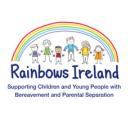How to Talk to a Child About an Impending Death: Expert Advice
Informing a Child About an Impending Death
Telling a child that someone they care about is going to die is incredibly difficult to contemplate. However, how this information is shared can significantly affect how the child processes the death in the months ahead.
There are two types of death: anticipated and sudden. Each presents different challenges and impacts. This article focuses on how to inform children about an impending death.
Age-Appropriate Communication
The age of the child must be considered, and the information should be shared in an age-appropriate way—ideally by an adult who is close to the child.
During the terminal phase of an illness, when it has been medically confirmed that the person will not recover, it is important to prepare the child. For very young children, this can be especially difficult, as they have no prior experience to help them understand what is happening.
The key factor in these conversations is honesty.
What to Say and When to Say It
You can begin by gently saying something like:
“You know [Name] has been very sick, and the doctors have been trying very hard to make her better, but she isn’t really getting any better.”
If the child asks,
“Are they going to die?”
this possibility should be acknowledged with honesty and sensitivity.
Timing is crucial. Discussing an impending death weeks in advance can be problematic. Children perceive time differently than adults—a week can feel like a very long time, and a month can feel endless. Giving exact timelines is not helpful, as patients often live beyond expected timeframes, which can confuse the child.
When the prognosis becomes clearer, and the person is expected to live only a short time, it can help to occasionally mention that the person is very ill. This lays the groundwork without overwhelming the child.
Children’s Reactions and Understanding
Even with careful preparation, children often react with shock when someone important to them dies. They may say they didn’t know it was going to happen. Later, they may acknowledge that they were told it was a possibility but didn’t fully understand at the time.
This is natural. The first time a child experiences a significant death, they are encountering something entirely unfamiliar. It is almost impossible for them to anticipate the emotional impact.
Nonetheless, preparing a child for the possibility of death can help them cope better with the loss.
Honesty, Timing, and Support
Honesty—delivered with gentleness and kindness—is essential when answering a child’s questions. Equally important is the timing of the information.
Children should not be overburdened with details. The best approach is to:
- Provide opportunities for the child to ask questions.
- Answer only what is asked, honestly and simply.
- Offer ongoing emotional support throughout the process.
Supporting a child through the experience of an impending death is one of the most delicate tasks an adult can face. With honesty, compassion, and age-appropriate communication, we can help children begin to understand and cope with what lies ahead, ensuring they feel safe, heard, and supported every step of the way.
Memorial Gift Shop
View AllCondolence Book for Home Printing
Condolence Book Cover & Presentation Box - for Home Printing
Mini Condolence Books - Printed and Bound
Creating a soft paperback book of online messages of condolence can be a meaningful way to preserve and honour the memories of a loved one.
RIP.ie Sympathy cards
Thoughtfully penned Sympathy Cards. Designed and printed in Ireland by RIP.ie.


